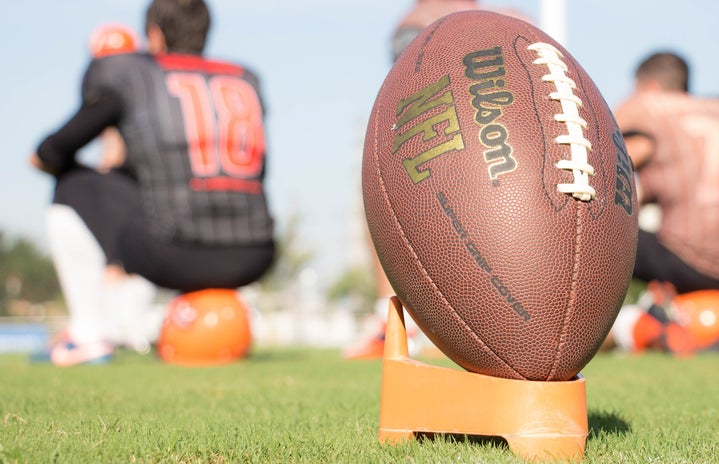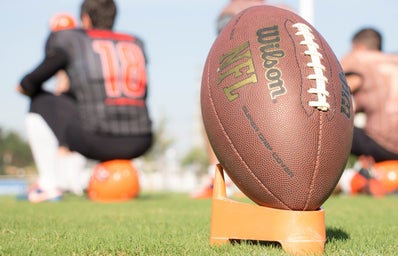Fall of senior year in high school is a stressful time for most students. For most of junior year into the summer, they worried about AP classes, standardized testing, and college visits. Come September, it’s time to start the college application process. The college search looks pretty similar for most students: they pick their list of schools, get their recommendations, write the essays, fill out the application, and send them in. Then they patiently wait to hear back until early or regular decisions come out. They have no clue what the result will be, and they are forced to sweat it out. For college-bound athletes, however, the entire process looks very different.
For athletes, the college process is harder in some ways, and easier in others. Each sport has a different timeline of when students typically commit to a college. Most team sports such as soccer, lacrosse, or field hockey, commit earlier: these students may know where they’re going to play by junior year. Some athletes, such as a lot of football players, may give verbal commitments as early as sophomore year. Other sports, like tennis and swimming, commit summer between junior and senior year or the fall of senior year. It seems so crazy that high school athletes are able to know where they’re going to school so much earlier than the normal student body. And a lot of times it may seem unfair, too.
In high school I heard students time and time again, say that it’s unfair for students to get recruited for athletics. They may argue that, especially for elite or more competitive colleges, recruiting gives athletes special access to these schools that they wouldn’t otherwise be able to get into. (It should be noted that this is not always the case, a lot of times athletes are just as qualified in the classroom). However this “elite access” is so often denied to other academically gifted candidates. My two sisters, and countless numbers of my friends were these athletes who were given a golden ticket to some of the top universities in the nation. As someone who pressed send on my early decision application and waited until December to hear the result, I understand this frustration.
As I went through the application process without any red carpet being rolled out in front of me- I have often asked myself the same question as to whether or not it is fair. I decided that I don’t think the idea of fairness even applies here. I see the two application processes as entirely separate. I don’t think that by the athlete being admitted they are inherently stealing a spot from anyone else. I also think that there’s a lot more that goes into the college recruiting process than those who look in on it from the outside may ever understand.
I’d argue that the competitiveness of the regular application process exists in sports as well. Most athletes train from a young age to get to the talent level required for the top-tier programs. They spend several hours of every day, all year round, dedicating themselves to various strength, conditioning, and skill based training. On top of this, they balance extracurriculars and academics. In fact, the rigid schedule and the disciplined mentality of a top-level athlete often make them perform well in the classroom too. But in order to reach the level of success to grab the attention of coaches, they must prove they are better than their peers, just as many students do in the regular college application process.
The recruiting process varies drastically by sport, but regardless of the details / what the timeline looks like for each student, it is definitely stressful. Often, it’s the school that chooses a student and not the other way around. Sometimes the students are selected amongst a small group to make official visits to schools, but aren’t granted a spot if the coach chooses their top picks over them. Coaches often talk to more students than they have spots for and it depends on where you fall in their ranking systems whether they will offer you a spot.
Students also have to meet various requirements to even be considered by a school. The most important of this is test scores, and GPA is also important. Many coaches, such as the Ivy League programs and other top academic programs will not even speak to you if you don’t meet their minimum testing requirements. Regardless of how the student is admitted into the school, they’ve done enough to prove to a coach that they deserve one of the few coveted spots at a top program, which students across the nation and internationally compete for.
The easy part of all of this is getting into the school. The next hardest part is being able to keep up with the program. Unlike normal applicants, athletes must balance a full college academic schedule, plus training sometimes as much as 20 hours a week. For a lot of sports this means two practices a day, often starting in the early morning hours. Athletes aren’t given a chance to sleep in because usually when they don’t have morning practice they have early morning classes. They travel for competitions, and forego social events. Some sports have dry seasons.
Life as an athlete both in high school and in college requires a lot of discipline. It may seem unfair that students get a fast pass to elite colleges just because they can play a sport- but on the other side it’s so much more than that. They go through a selective process too, it just looks different than most people’s. Top tier athletes should be respected for earning the right to compete at the college level.

